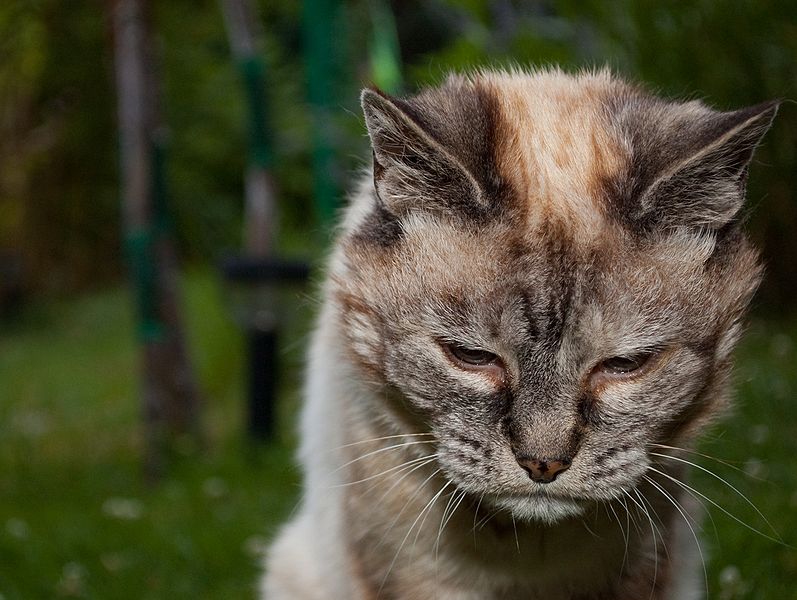Health and the older cat

With my own cat getting on in age at nearly the 16-year-old mark, I’ve found that it’s important to understand how a cat’s health changes over the years. She’s certainly not the same scraper that she was at six, and even though she’s mostly healthy, there are still things that I need to think about in order to keep her that way. I thought I’d share a little bit of knowledge here, for those that are dealing with their own aging felines.
First of all, once your cat hits 12 years, it’s about the equivalent of a 60-year-old human. Even before that, health needs change and problems may begin to set it. The Cornell Feline Health Center has some good information regarding what happens to a cat as it ages. One of the biggest things involves the decline of their immune system, thus making them more susceptible to a wider range of diseases and other health conditions. They become more prone to skin infections, dental disease, arthritis and kidney problems, as well as serious conditions such as diabetes and cancer. Hearing loss is common in older cats, as is a marked mental decline. The last one doesn't mean they’ll get dazed and confused, but usually just means they get a little crankier and need some special considerations when it comes to social time.
To keep up on your cat’s health, make sure to always stay alert for changes in both their physical and mental state. If they start losing or putting on weight, you’ll need to adjust their diet. If they seem unsociable, you might need to find time to play with them. This also has the advantage of getting them some exercise, something that some cats avoid in their later years. You’ll also want to avoid stressing your cat out by limiting the changes in its lifestyle and home as well as helping to alleviate stress through petting and spending time with it. All these will serve to create a safer-feeling environment.
I also put together a few dietary tips, courtesy of WebMD. They suggest higher water content in your cat’s diet and a transfer from dry to wet food. Often cats won’t eat because of painful dental issues, so they need something easier to chew. Another thing that helps is feeding them more often, but giving them smaller portions. If your cat has problems with getting a little too heavy, then special senior-diet food is available to help with that. Ultimately, a vet is best suited to plan out a good diet for an older cat based on their individualized special needs.
They also suggest some basic lifestyle elements to help an older cat have an easier time in general. A good, warm place to sleep, away from whatever action is going on in the house, is essential. Some cats, especially those that develop arthritis, may need access ramps to help them get around to their favorite places. Older cats sometimes neglect their basic needs, so grooming and nail trimming may need to be added to the daily checklist if they aren't on there already.
But the best thing you can do to make sure your older cat remains healthy for as long as possible is to just pay attention to them. If there’s any change in behavior, you should take them to a vet. Sometimes behavioral changes can be indicators of physical problems and you’ll want to catch those early. Regular check-ups can help with this as well. As long as you’re cautious and observant, an old cat can live on to become even older and will be very grateful for your added attentions.
Image courtesy of Dimitri Torterat

1 comments